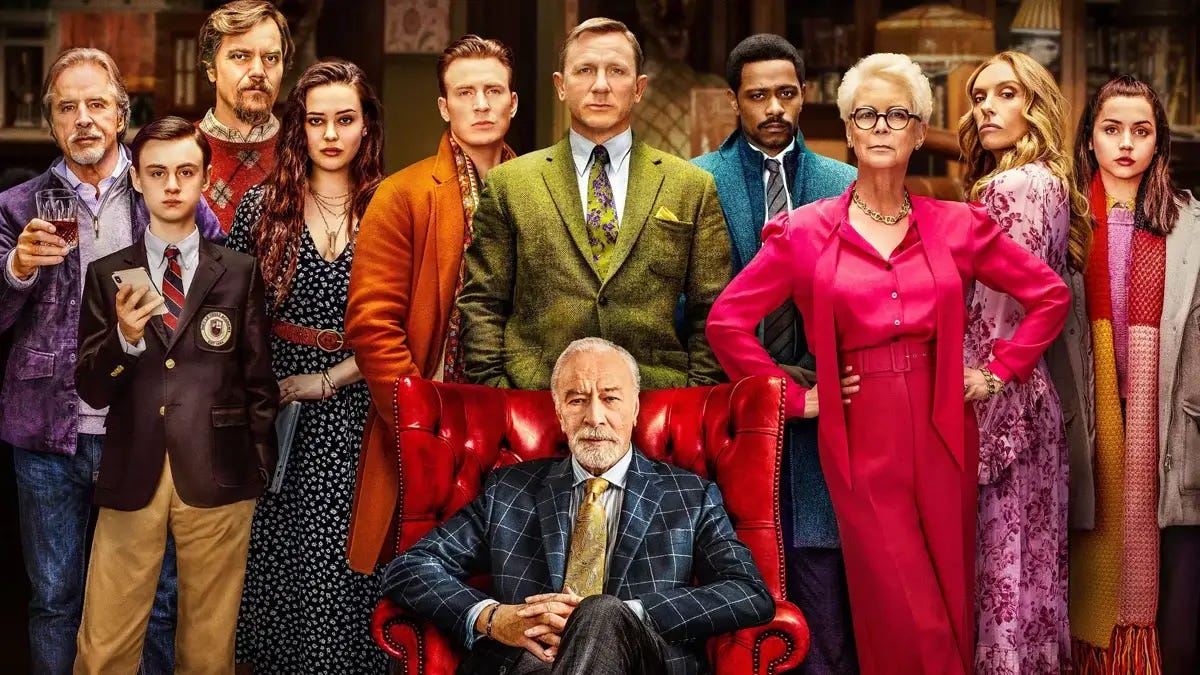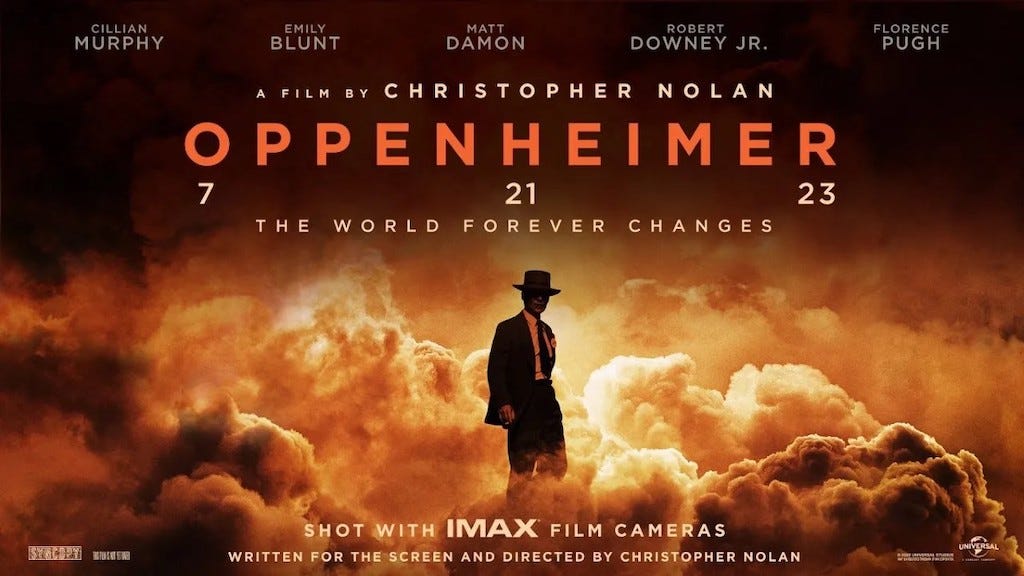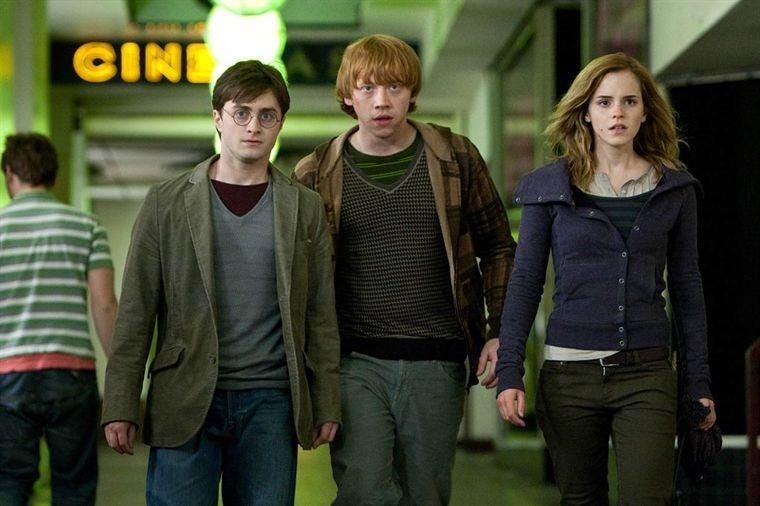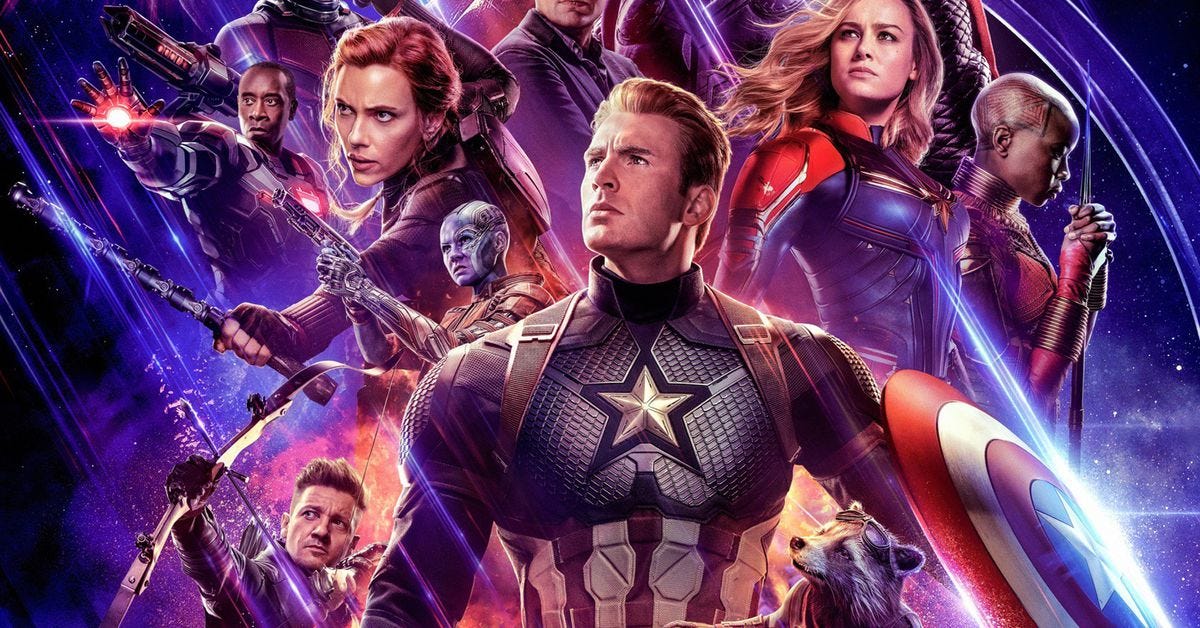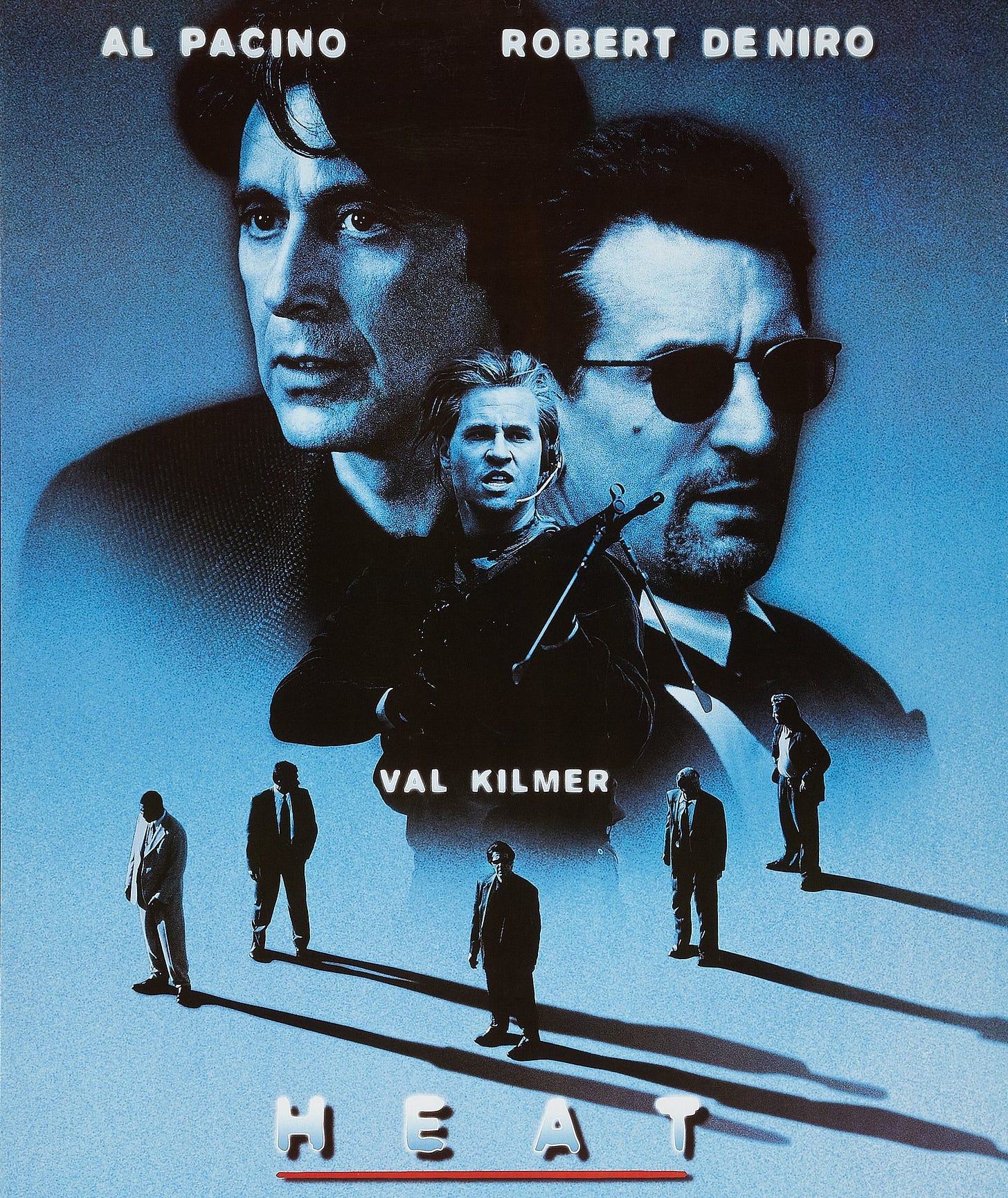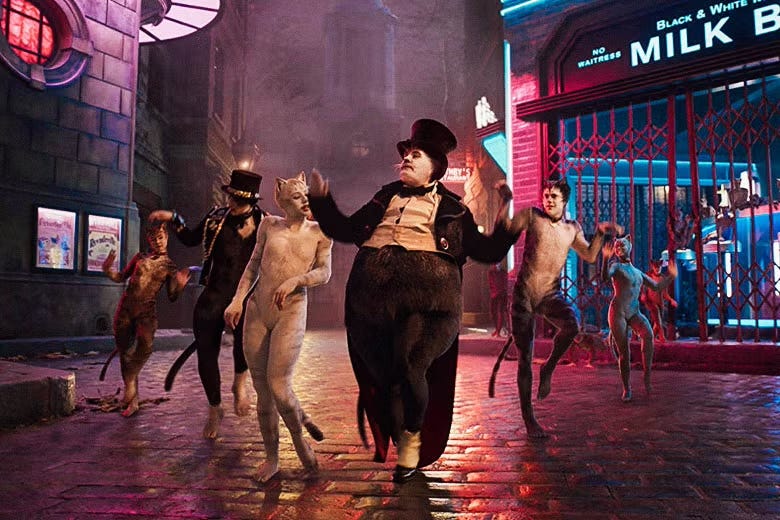Which Movies Have the Greatest Casts in Film History? A Statistical Analysis
An exploration of the films that assembled the best actors, and whether star power makes a difference at the box office.
Intro: Anatomy of a Trailer
If you're human and have looked at a screen within the past two months, then you've probably seen an advertisement for Universal Pictures' Argylle. If you're unaware of Argylle, congratulations; somehow, you've evaded the most omnipresent film marketing campaign since Barbenheimer. In contrast, I have failed at avoiding these advertisements, having seen previews for this film no fewer than fifteen times.
When you repeatedly consume a movie trailer, you begin to deconstruct a film's marketing message. What does this movie want you to know about itself? Why do the producers think you'll want to watch this work? In the case of Argylle, the film uses every second of its two-and-a-half-minute preview to flaunt its A-list cast. The trailer features a cavalcade of mega-stars, including Dua Lipa (music star!), Henry Cavill (Superman!), John Cena (muscles!), Bryce Dallas Howard (Jurassic Park!), Catherine O'Hara (Schitt's Creek!), Bryan Cranston (Walter White!), Samuel L. Jackson (what's in your wallet?), and Sam Rockwell (Three Billboards!) sprinkled throughout its 159 second runtime, with a series of title cards at the preview's end to remind us of all the celebrities we just saw.
My first time viewing this advertisement, I thought, "This looks bad," and I wrote off Argylle as a low-rent combo of James Bond and Austin Powers. But then I kept seeing the trailer—over and over and over again—each time dazzled by Hollywood stars. By my tenth viewing, I had been Argylle-pilled. I began to ask myself questions like, "Can a movie with this many celebrities be bad?" I had been blinded by star power, convinced to see a movie by a few famous names.
My seduction at the hands of Argylle got me thinking about Hollywood casting, specifically the value of celebrity. So today, we'll examine the greatest casts in cinema history, measuring greatness by recent box office success and Oscar prestige, and we'll analyze the ROI of collective star power.
Methodology: Valuing a Cast via "The Movie Poster Test"
A movie's poster reduces the careers of film stars into a line item in an advertisement. The logic is simple: if you like [insert celebrity's name], you'll love [insert movie]. Consider the poster for Oppenheimer, from which we can ascertain that the movie is about something firey, directed by Christopher Nolan, with a man in a top hat, and that the film stars numerous actors of great renown.
Our analysis will quantify the commercial and critical prowess of a movie's leading actors based on their body of work before that film's release—the way one would if looking at a movie poster.
Quantifying Recent Box Office Success
For box office performance, we'll measure the average inflation-adjusted gross for a movie's cast with the following parameters:
A Film's Six Leading Roles: We'll study a film's six leading actors and their box office performance in movies where they also had starring roles (were among the top six credited).
An Actor's Five Most Recent Movies: We'll analyze each actor's five most recent roles for films released within the past ten years (relative to the project in question). Hollywood has a short memory; recency is always a significant factor in casting.
Casts of Well-known Actors with Track Records: Our calculations will include actors who have appeared in five or more films, and we will only analyze a movie's cast if it includes four or more actors with a significant box office track record.
Analyzing Sequels and Originals Separately: Unsurprisingly, casts of long-running franchises like Harry Potter and Marvel's Cinematic Universe typically perform best, so we'll analyze sequels and original works separately.
Quantifying Critical Acclaim
Quantifying critical acclaim is exceedingly less complex, as we'll count career Oscar nominations earned by a film's cast before that movie's release.
An Example—Analyzing Avengers Endgame:
Consider Avengers: Endgame, one of the highest-grossing movies of all time. The film's top-billed castmember was Robert Downey Jr., a then-two-time Academy-Award-nominated actor whose five previous films performed spectacularly well at the box office:
Endgame's top-six billed actors were all Marvel veterans from previous MCU installments:
Overall, the leading cast members of Avengers: Endgame earned an average of $960M in recent films and received 7 Oscar nominations before the movie's release. Not bad.
A Note About Snubs: Which Movies Should Have Made the Cut?
If you read these lists and believe I missed something, let me know in the comments section of this post. This analysis cannot showcase every film, and the methodology for assembling these movies is highly specific, so some all-time greats will be missed (Pulp Fiction, Lord of the Rings, The Departed, etc.). I welcome any and all feedback—provided that feedback is cordial. At its best, this article will give way to a lively discussion of cinema’s greatest works.
1. Best Sequel Casts According to Box Office Performance
Our list of best sequel casts is emblematic of modern Hollywood's infatuation with franchise filmmaking, where commercial cinema is defined by a well-worn formula: [Well-known Intellectual Property] + [Cast of Celebirities] = [Box Office]. Quantifying the economic potential of long-running film franchises was not the goal of this exercise—but here we are. Feel free to skip this section if you're a cinema purist.
Some Observations from our List of Best Sequel Casts:
The Inevitability of Endgame: Is it any surprise that Avengers: Endgame is one of the highest-grossing films of all time? If you consider recent box office performance as a heuristic for quantifying star power, then this movie had the greatest commercial potential of any project in film history (by a long shot).
Franchises Can Consume Entire Careers: One quirk of this analysis is that it favors actors who only perform in franchise movies. With this in mind, it's fascinating to see large swaths of once-promising careers consumed by demanding shoots for a never-ending string of action sequels. Simon Pegg, a British comedy star known for cult classics like Hot Fuzz and Sean of the Dead, is mainly in Mission Impossible movies nowadays. Vin Diesel was one of the main characters in Saving Private Ryan, and now he's just a meme of himself in the Fast & Furious franchise.
Why Isn't Every Movie Part of a Franchise?: Moviegoers’ ever-increasing familiarity with the same characters and stories fuels a self-perpetuating cycle of commercial success, with each installment deepening a viewer's connection to a series and its actors. You can see how Hollywood studios would become infatuated with creating and nurturing big-budget franchises. When you look at these numbers, it almost feels like a miracle that we still get original works like The Holdovers, Poor Things, and Past Lives.
2. Best Non-sequel Casts According to Box Office Performance
Our list of best non-sequel casts is a breath of fresh air, mostly comprised of big-budget prestige pictures—an increasingly rare class of film. These films skew toward recent years as grosses for the average movie have substantially increased over the last three decades (even when adjusted for inflation).
Some Observations from our List of Best Non-sequel Casts:
The Allure of Auteur Directors: Superstar directors can assemble superstar casts. This list features numerous films from legendary directors, including Martin Scorsese, David O. Russell, Darren Aronofsky, Tom Hooper, and Christopher Nolan. Actors want to work with these directors and are willing to take a pay cut in a supporting role for the opportunity.
The Magnificent Failure of The Lone Ranger: Disney's adaptation of the legendary Lone Ranger character is one of the biggest box office bombs in film history. This movie had Johnny Depp coming off Pirates of the Caribbean and Armie Hammer coming off The Social Network, and it still did poorly. Depp was cast as a Native American, and when confronted with the backlash from this decision, he said he considered the role a personal attempt "to try to right the wrongs of the past"—which is just tough to read.
Most of These Movies are High-Quality: Many of the films on our list put their collective star power to good use. Oppenheimer is the highest-grossing R-rated movie in film history and is primed for a Best Picture win this year. Knives Out single-handedly reinvigorated the who-done-it mystery subgenre. Les Misérables is a rare instance of a movie musical performing well at the box office and with critics. A high-powered cast can leave an indelible mark on audiences when guided by skillful direction and a competent script.
Enjoying the article thus far and want more data-centric pop culture content?
3. Best Casts Based on Oscar Recognition
It's fashionable to disparage The Oscars, to write off this awards show as an unnecessary popularity contest where awards are given to high-paid, out-of-touch movie stars. All of this may be true, but they still matter. Have you noticed how movie marketing emphasizes actors who are "Academy Award Winning" or "Academy Award Nominated"? Earning Hollywood's biggest prize is the highlight of any actor's resume. To bring multiple award-winning performers together signals that this is a high-quality work of great prestige.
Our list features casts with three or more Oscar-nominated actors—movies where an ensemble can truly be classified as "star-studded."
Some Observations from our List of Oscar-renowned Casts:
The Greatness of Meryl Streep: Meryl Streep garnered several Oscar nominations early in her career and makes a point of starring in works with other distinguished actors. As a result, she's in numerous films on this list. Her brand has become synonymous with quality—an actor who selectively performs in the best projects alongside the best cast members.
High-Profile Adaptations Attract Talented Actors: Many of the films on this list are high-profile adaptations derived from well-known books and plays. August: Osage County, which tops our rankings, wracked up Tony awards on Broadway before its movie adaptation, while Marvin's Room ran off-Broadway for several years before making it to the big screen. Similarly, Heartburn, Postcards from the Edge, and The Irishman stem from acclaimed novels. These projects attract high-profile actors, often Meryl Streep, bringing together a deep ensemble of A-list talent.
Many of These Movies Qualify as "Awards Bait": Many of these films were considered "Oscar contenders" at the time of their release—prestige pictures dropped late in the year in the run-up to Oscar voting. Studios can capitalize on the built-in advertising of Academy recognition while also winning awards, killing two birds with one stone. Throw in the fact that many of these works are also helmed by storied directors like Martin Scorsese, Mike Nichols, Robert Redford, Michael Mann, and Guillermo del Toro, and it's somewhat surprising none of these films scored meaningful Oscar wins.
High-Level Industry Trends: Do Distinguished Casts Attract Moviegoers?
Big-ticket actors don't come cheap. To assemble an ensemble of A-list talent is to gamble on these celebrities collectively attracting meaningful viewership. So, do distinguished film casts draw moviegoers? The answer is yes and no—it depends on how you cut the data.
When we group the data by previous box office performance and genre, we find that star power pays dividends as returns grow in tandem with recent commercial success.
There is less of a relationship between Oscar pedigree and box office returns. The biggest jump in film earnings occurs between casts with zero nominations and those with non-zero nominations. As aggregate nominations increase, we see no discernible relationship between box office and Oscar prestige.
Indeed, having just one Oscar-nominated performer is linked with higher-grossing productions, with the exception of horror (since nobody wants to see Meryl Streep in The Texas Chainsaw Massacre).
At the same time, it's important to note that correlation is not causation. Bigger-budget films often have better casts, making it hard to determine the value of stardom. Do viewers like Gladiator and Blade Runner 2049 for their actors or their +$100M budgets?
To discern the value of acting pedigree, we can repeat the same exercise by examining average box office gross across varying film budgets. Let's say Robert Downey Jr., who just came off mega-hits like Avengers: Endgame and Oppenheimer, decided to star in a low-budget indie (with a budget of $20M or less)—would his stardom elevate the commercial prospects of this film? The answer is yes; an actor's recent box office performance is associated with elevated earnings across all budget ranges.
The same cannot be said of Oscar prestige, where we find little correlation between highly decorated ensembles and movie grosses when examining this relationship across various budgets.
It appears the presence of Oscar greatness, even just one nominee, elevates low-budget and high-budget films while not boosting the commercial prospects of mid-budget works.
Having at least one venerable actor can attract moviegoer attention for indie flicks and big-budget endeavors, but wracking up a bevy of Oscar nominees adds little additional value. Prestige only helps to a point. On the other hand, widespread moviegoer familiarity, as measured by recent box office success, is more likely to boost film earnings. I care deeply about The Oscars, for better or worse, so their relative insignificance is a bummer.
Final Thoughts: Star Power is Indisputable
If you read Hollywood trade sites like Deadline, you'll find an onslaught of news coverage surrounding casting discussions and selections for tentpole movie projects—effectively high-moneyed gossip. For example, a recent article was entirely dedicated to Zendaya’s purported willingness to star in another Dune movie—entitled “Zendaya Says She’d be in a Dune 3 if Called.” Hard-hitting journalism at its finest.

Modern-day fandom has made the significance of big-budget casting decisions worthy of standalone news—with online fanatics dissecting the machinations of entertainment dealmaking to the point of insanity. When James Gunn's upcoming Superman reboot announced its new franchise stars, the internet reported the story in great depth—likely superseding news coverage of more pressing global events. Celebrity culture dominates our interactions with art, mediating how we anticipate and consume media.
I'm not fond of celebrity culture, but I'm also not immune. Suppose I pitched you the following movie:
"A crime drama where a seasoned detective obsessively pursues a master thief planning his next heist, leading to a cat-and-mouse game set against the backdrop of Los Angeles."
Would you want to see this film? Cat-and-mouse tales of cops and robbers are a time-honored storytelling trope—nothing new to cinema. Would you fork over $15 to see this movie?
Now, suppose I told you this movie is Heat, the first film in which acting legends Al Pacino and Robert De Niro share the screen, facing off as cop and robber. Well, now I'm interested.
And suppose I pitched you this movie:
"A bizarre musical fever dream about disproportionately sized cats that sing and dance in a film with an unintelligible plot."
Surely, you'd want to skip this film, right?
Now, what if I told you this movie was Cats, and you could watch no fewer than nine A-list celebrities (two of whom have been knighted) suffer the indignity of this disaster production? Once again, count me in.
Celebrity culture is a self-mythologizing distraction, but it serves a purpose. Casting is one of the limited details prospective moviegoers possess when deciding what to watch. I will see anything with Donald Glover, Bo Burnham, Scarlett Johansson, Paul Mescal, Anya Taylor-Joy, or Glen Powell, even though I have never met these people.
We connect with movie characters and, in turn, connect with the actors behind these performances. Excluding franchises, beloved characters do not endure beyond a single movie, but actors do. We form emotional bonds with performers across a body of work and trust they'll guide us toward films we'll enjoy.
Want to chat about data and statistics? Have an interesting data project? Just want to say hi? Email daniel@statsignificant.com


